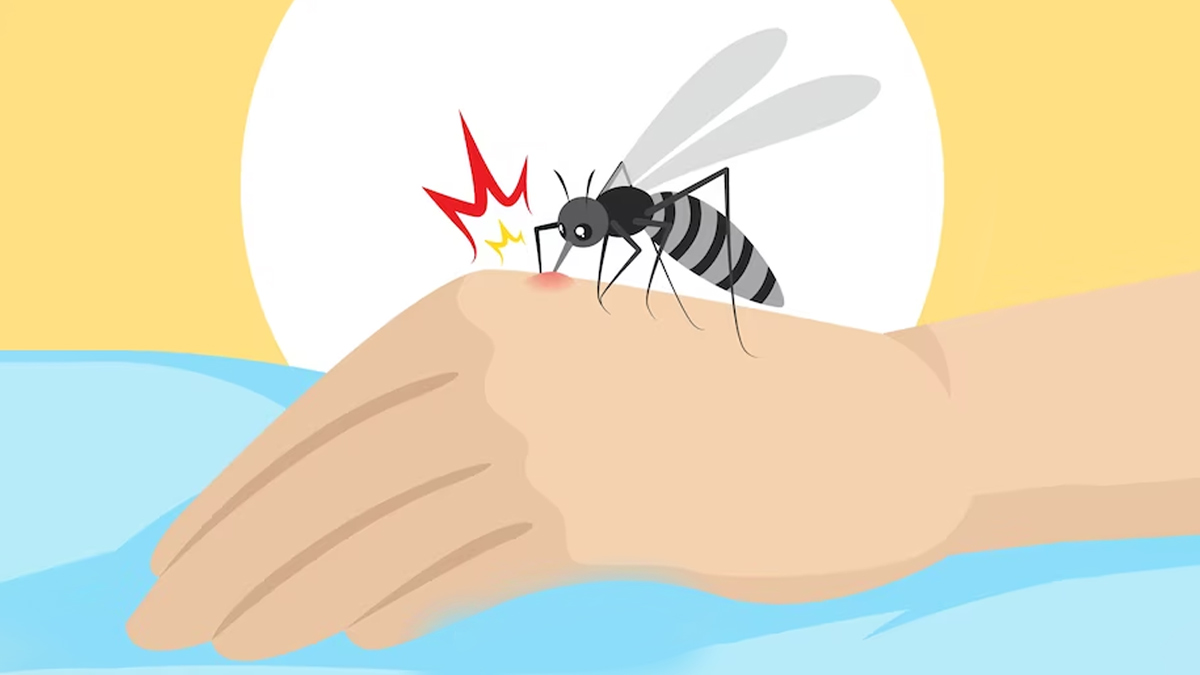
Malaria, a mosquito-borne infectious disease caused by the Plasmodium parasite, can affect individuals of different age groups differently. Factors such as immunity, previous exposure, and overall health status can influence the severity. To learn more about this, we talked to Dr Hari Kishan Boorugu, Consultant Physician, Yashoda Hospital, Somajiguda, Hyderabad.
Table of Content:-
Common Symptoms Of Malaria
While talking to OnlyMyhealth, Dr Boorugu said, "The common symptoms of malaria include high-grade fever, shaky chills and vomiting. Severe malaria can result in anaemia, jaundice, low consciousness level, kidney failure, and even death."

He further said, "The presence of high-grade fever despite treatment, severe jaundice (yellow-coloured urine), drowsiness, and low urine output show severe malaria, which indicates the need for hospital admission.”
Also Read: Malaria can now be detected using a life-saving light beam
Effect of Malaria on Different Age Groups
"People who travel from a non-malarial area to a place with a high incidence of malaria and acquire the infection also tend to have severe illness due to a lack of prior exposure and immunity," he added.
Here is how malaria affects people of different age groups:
Effects on Children (Up to 14 Years)
Dr Boorugu said, "Younger children between six months and six years of age are prone to severe illness with malaria in endemic areas with high rates of malaria." He also added that the children may also manifest severe anaemia and seizures due to malaria.

Older children exposed to malaria may develop partial immunity, which can reduce the severity of symptoms. However, they can still experience fevers, chills, fatigue, and other flu-like symptoms during malaria episodes, said the doctor.
Effects on Adolescents (15-19 Years)
Adolescents who have not been previously exposed to malaria may be at risk of severe symptoms, especially if they live in areas with high malaria transmission. They may experience symptoms similar to those of adults, including high fever, headache, body aches, and nausea.
Effects on Adults (20-59 Years)
Adults, especially those living in endemic areas with frequent malaria exposure, may develop partial immunity to malaria over time. They may experience milder symptoms, such as fever, chills, and body aches. But severe malaria can still occur, particularly if the individual has other health conditions that weaken their immune system, like multiple sclerosis.
Also Read: World Malaria Day 2023: Know What To Do And What Not To According to Ayurveda For Malaria Prevention
Effects on the Elderly (60+ Years)

Older adults may be at increased risk of severe malaria due to age-related decline in immune function. They may experience more severe symptoms, such as high fever, confusion, organ failure, and increased mortality rates compared to younger age groups. Dr Boorugu said that adults with severe malaria may lead to acute lung injury and acute kidney failure, among other problems.
Effects On Pregnant Women
Dr Boorugu added, "Severe malaria in pregnancy can be harmful to both the mother and the foetus." He said pregnant women are at increased risk of malaria and delivering low birth-weight babies.
Diagnosis of Malaria
Malaria can be easily identified, according to Dr Boorugu, using basic blood smear tests and rapid card blood tests (similar to urine pregnancy kits). Severe malaria is often the result of a delay in diagnosis or sometimes due to drug resistance or inadequate treatment.
Conclusion
"There is no effective vaccine for malaria, and prevention is mainly by controlling mosquito growth, public health measures to contain mosquito breeding sites, and using mosquito repellents or nets to prevent mosquito bites at night," Dr Boorugu said.
Image Credits: freepik
Also watch this video
How we keep this article up to date:
We work with experts and keep a close eye on the latest in health and wellness. Whenever there is a new research or helpful information, we update our articles with accurate and useful advice.
Current Version